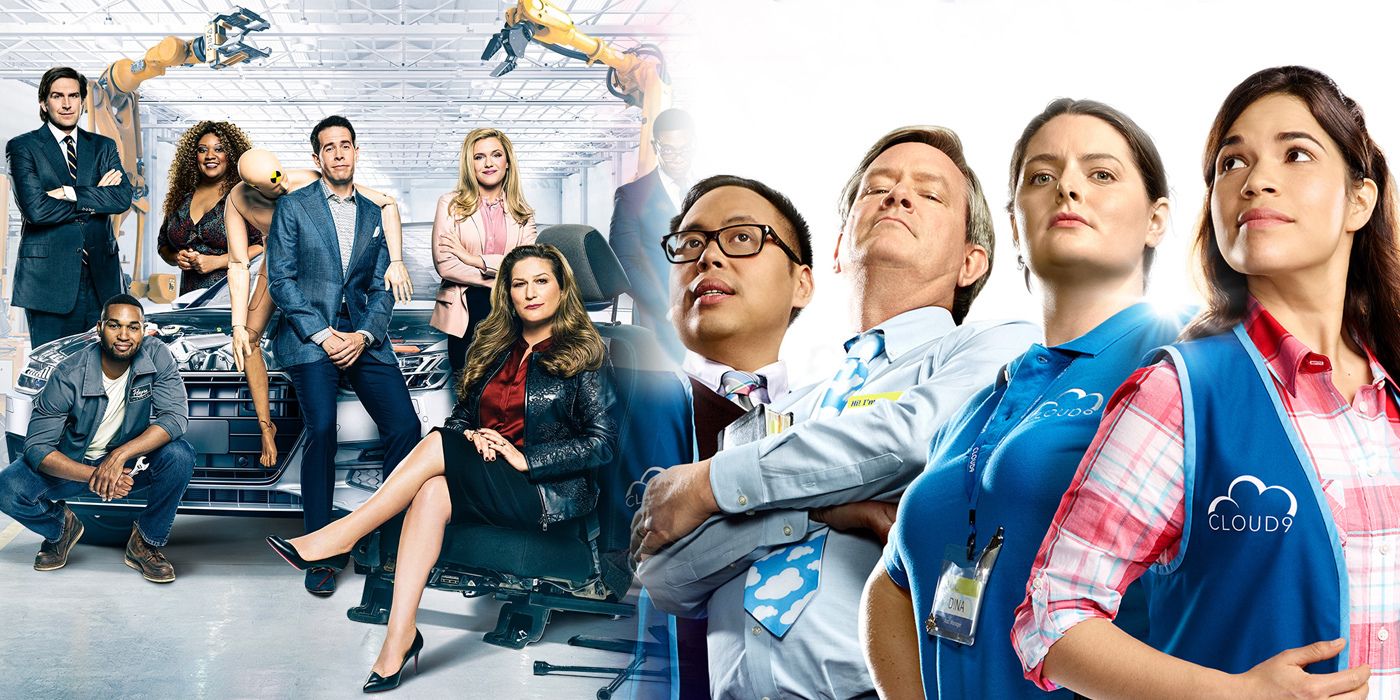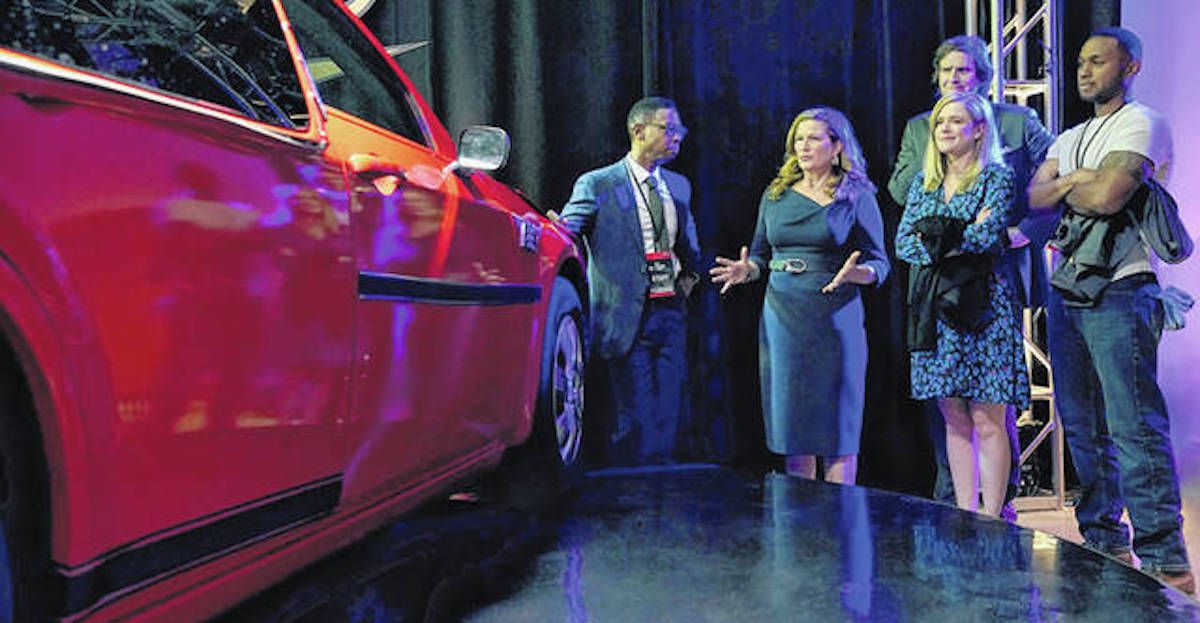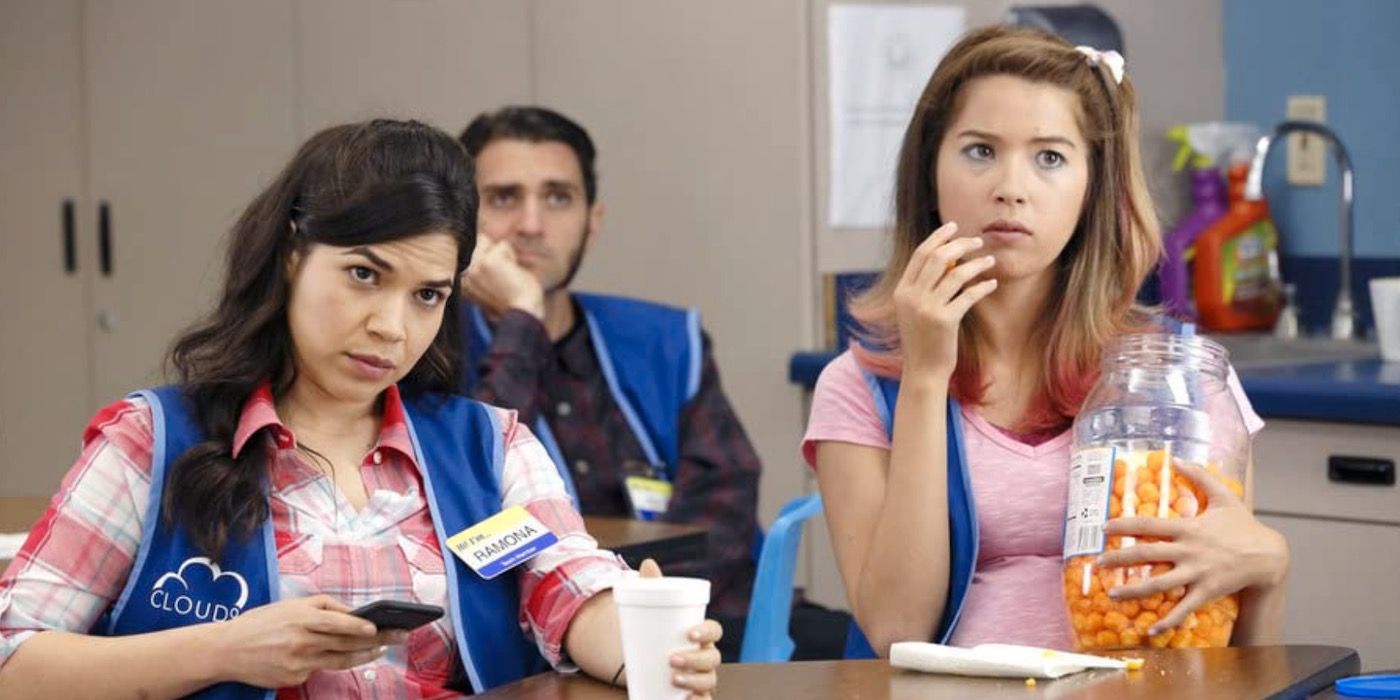If there was one thing NBC wanted us to know before the premiere of American Auto, it’s that the new comedy would be the successor to Superstore. Both comedies hail from the same creator (as promised in big letters in the promotional materials), Justin Spitzer, and content-wise, it makes sense to present the shows under the same umbrella. They’re both workplace sitcoms with a diverse cast of characters. Each pulls back the curtain and pokes fun at major corporations: in Superstore, it’s Cloud 9 (a big-box store à la Walmart), and in American Auto, it’s Payne Motors (a Detroit-based car company like Ford or General Motors).
But fans of Superstore’s sugar-sweet center might be surprised when they take a bite out of American Auto. Where the former’s comedy was fundamentally kind, American Auto’s laughs are acerbic and cynical. Where Superstore was ultimately about an unlikely found family helping each other solve problems, its successor is about a dysfunctional team that tends to make each other's issues worse. Despite their superficial similarities, the shows couldn’t be more different -- in fact, they’re exact opposites.
Take the pilot premises, which admittedly share a key similarity: a fish-out-of-water employee joins the workplace and is forced to learn the job on their feet, making mistakes along the way. But in Superstore, the employee is Jonah (Ben Feldman), a business school drop-out searching for purpose in his life by starting at the very bottom of the Cloud 9 ladder. His mistakes (in this, and most other episodes) are basically resolved by the end of the half-hour. In American Auto, it’s Katherine Hastings (Ana Gasteyer), a former pharmaceutical big boss who is now a clueless automotive CEO. She’s looking for nothing but easy wins and consolidation of power, and her thoughtless mistakes, like her announcement of the "Payne Pika," an impossible $10,000 car, have only snowballed into bigger problems as the season progresses.
The difference between Jonah and Katherine highlights the fundamental difference between Superstore and American Auto. Superstore was about a group of working class people who were easy to root for; they were often pitted against “corporate,” who frequently treated their customer service employers poorly and were viewed with disdain. There was even an ongoing plot about unionizing in later seasons. Meanwhile, Katherine and her cohort are corporate, and the narrative frequently encourages the audience to root against them, such as when the new CEO entertains a bid to host a factory from a nation rife with human rights abuses.
American Auto’s commitment to its unlikable characters and showing the dark side of corporate culture may remind audiences less of Superstore than The Office, where Spitzer spent seven seasons as a writer. In fact, according to Deadline, American Auto was his first pitch after leaving the juggernaut mockumentary, but was put on the back burner in favor of Superstore. The influence of Dunder Mifflin can be seen much more heavily in the bumbling haplessness of the characters in American Auto, and how the show dialed up the cringe factor faster and further than Superstore ever did.
With respect to that show -- which was a warmhearted, underrated gem of a broadcast sitcom -- Spitzer’s detour from The Office to the kindhearted comedy of Superstore gives the satire of American Auto more bite. The stark difference between this show and its predecessor may be jarring, but in some ways, that makes it all the more exciting. Paradoxically, marketing American Auto as a Superstore follow up and then delivering something totally different just highlights how unique the freshman comedy is.
No, the characters aren’t as likable as Superstore’s endearing work family, but after the thread of antagonism towards the higher-ups in that show, it’s only natural to pull back the curtain on the top of the food chain. In Spitzer’s words (per Deadline), "Superstore is so much a show about people whose lives are dictated by corporate, and they seem like antagonists all the time, and it seemed fun to get a peek on behind the scenes of how the decisions get made."
It follows, then, that those decisions are harmful at best and shockingly self-serving at worst, which is reprehensible, but very funny (especially in the hands of a legendary Saturday Night Live alum like Gasteyer). American Auto is as ruthless in parodying clueless and greedy CEOs as that CEO is when pondering the "value of human life" in the "Recall" episode. Superstore rallied behind unionizing workers while American Auto screws them over ("Earnings Call"). The real-world relevancy of the plot lines will have the audiences relishing our protagonists’ failures.
And speaking of failure: it’s not just Superstore that American Auto is breaking from, either, but sitcom conventions as a whole. Of course, the series is still finding its footing and (given the chance) will grow and change over time. But where the expectations of traditional TV comedies usually demand things be all tied up in a bow by the end of the episode (as Superstore did, more often than not), American Auto is unafraid to leave its characters worse off than when they started. This is true in the ongoing "Payne Pika" plot, as the team struggles to come up with shady ways to cut costs of their new model. It’s also shown in the "Commercial" episode, when the higher-ups attempt to shoehorn diversity into their family-friendly TV spot and end up airing a haunting, child-less ad. The series has great, straightforward joke writing, but there’s also rich comedy in the schadenfreude.
It remains to be seen whether American Auto’s boldness will be accepted by audiences -- or whether NBC’s gamble in presenting a Superstore follow-up that’s completely opposite to Superstore will pay off. Where Superstore was sympathetic, American Auto is sharp. Superstore made an earnest attempt at tackling the issues of the day from the perspective of the underdog, while American Auto viciously skewers the counter perspective; it shows how fruitless it is to be "woke" within corporate culture. On Superstore, we wanted to see the good guys win. On American Auto, it’s a gleeful relief to watch the bad guys lose. It’s not what we might have expected, but based on this promising start, American Auto could very well be carving its own path to greatness.




